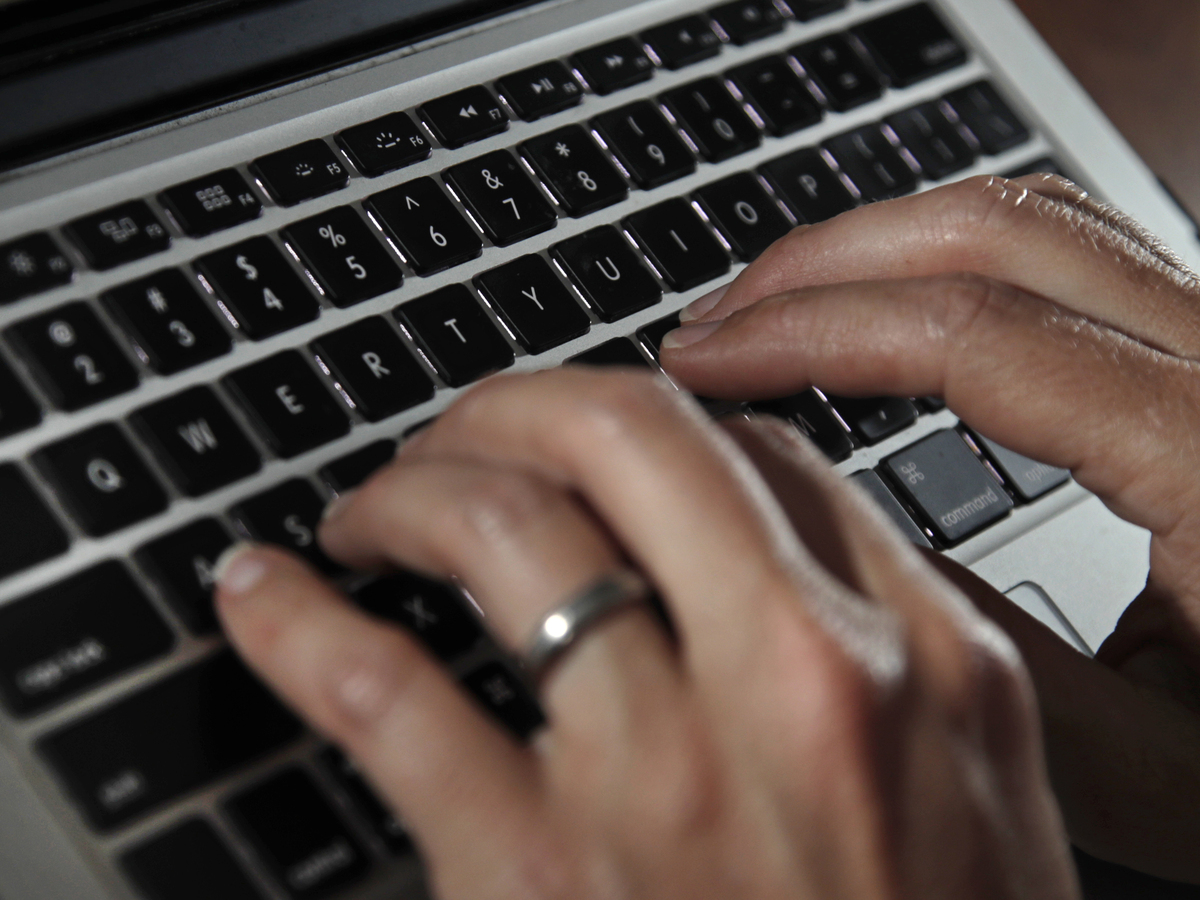TimeCamp time-tracking software is able to monitor which files are accessed, for how long, and whether other non-work-related activities, such as streaming services, are being used on a laptop.
Elise Amendola/AP
Hide caption
Switch caption
Elise Amendola/AP

TimeCamp time-tracking software is able to monitor which files are accessed, for how long, and whether other non-work-related activities, such as streaming services, are being used on a laptop.
Elise Amendola/AP
When Canadian accountant Carly Pace is fired for being unproductive at her job, she finds herself facing off not only with her former employer, but also with a time-tracking program.
Now, a civil court, which is part of the Canadian judicial system, It ruled that Pace owed her former company $2,756 After software installed on her laptop revealed she had misrepresented more than 50 hours of work.
Pace worked remotely at Reach CPA, an accounting firm based in British Columbia, Canada. The feud began last year when Pace claimed she was fired without “just cause”.
Her employer argued that Bess had left her due because she had been involved in the time theft. Reach CPA said it collected the evidence using TimeCamp, time-tracking software that records which files are accessed, and for how long. The logs showed a 50-hour discrepancy between what Pace reported as work time and what TimeCamp recorded as work activity.
Pace argued that she found the software difficult to use and could not get the software to distinguish between work and time spent on her work laptop for personal use—which the parties agreed was allowed by her employer during off-hours.
In a video filed with the court, Reach CPA showed that TimeCamp is able to record when and for how long employees access work-related documents, and discriminate — based on electronic track — when they are in non-work locations, such as livestreams. A service like Disney Plus. The company makes the final distinction between practical and non-work related activities.
Pace also argued that she spent a great deal of time working with paper documents, but didn’t tell her company “because they didn’t want to hear about it.” However, TimeCamp also tracks printing activity and the company found no evidence that it printed a high volume of documents.
When faced with an unaccounted 50 hours, Biz told her manager that she had inaccurately clocked some hours in her schedule.
“I connected time to files that I didn’t touch on and that wasn’t right or appropriate in any way or way, and I realize that and so I’m really sorry,” Pace said in an interview. According to a video included in the ruling.
Ultimately, the Court of Civil Decision dismissed Pace’s claims. The court also ruled that Pace has 30 days to pay her former employer for the unaccounted hours she was paid and other associated costs.
An increasing number of companies are using technologies to monitor their employees while they are working from home. Employers see it as a tool to ensure workers are not complacent and to improve efficiency. However, workers and privacy advocates say this type of tracking is intrusive and worry that it will normalize workplace surveillance, even when people return to the office.

“Beer fan. Travel specialist. Amateur alcohol scholar. Bacon trailblazer. Music fanatic.”



